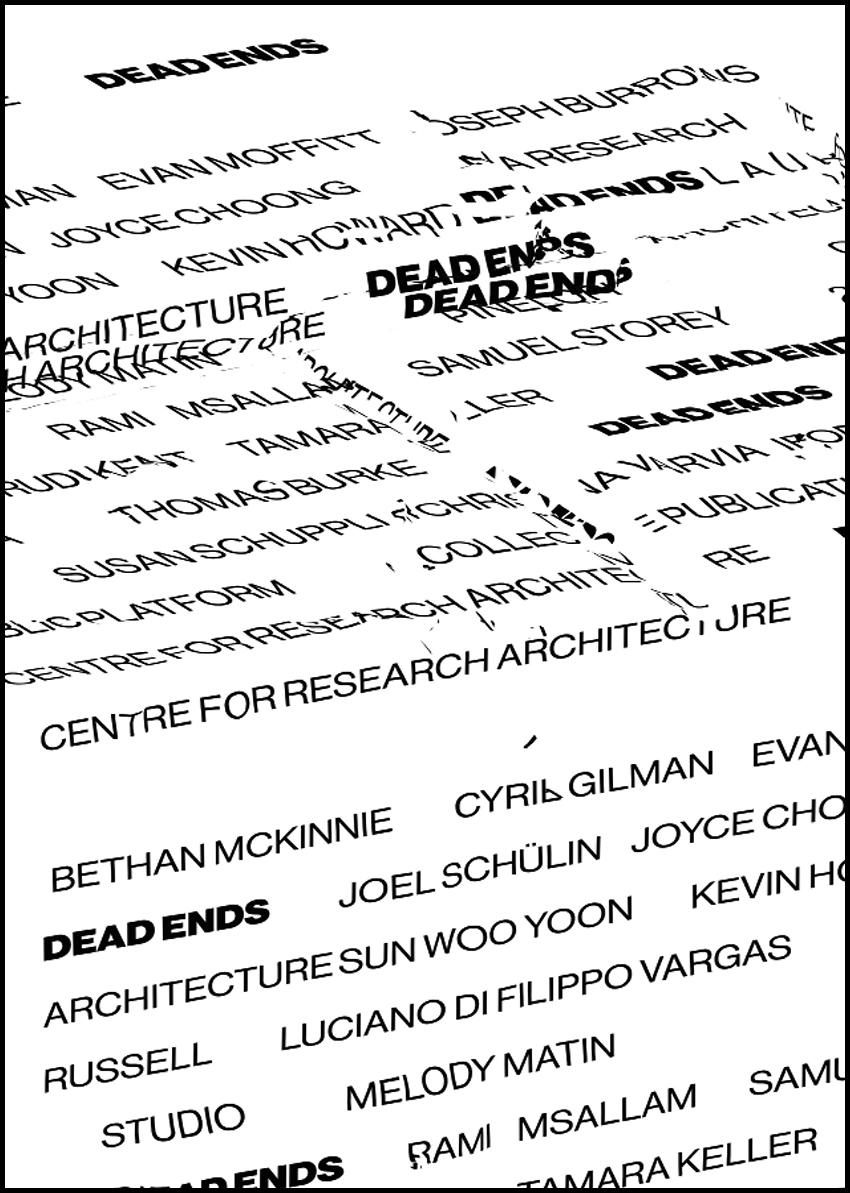Dead Ends
MARA 2023-24


To conduct research politically — that is, to search, read, listen, look against the grain of epistemic power — requires that we risk drawing blanks. Each investigation, each body of research produced at the Centre is also a “particular bundle of silences,” as Michel-Rolph Trouillot said of historical narratives,1 even as it grows arounds the structural limits of its knowledge. Data may be classified, limited in access, destroyed, uncollected, unthought; researchers have finite and variable amounts of resources, access, even energy; sometimes these limitations are absolute.
In Dead Ends, students, teachers, and friends of the Centre for Research Architecture will confront the lines of inquiry within their research that ran dry, or were cut off—but produce something else through the critical examination of these “ends.” How do we make these ends operative, use them to carve out new investigative routes? In Saidiya Hartman’s words, how do we “reckon with loss” and “respect the limits of what cannot be known” and yet “dramatize the production of nothing— empty rooms, and silence, and lives reduced to waste”?2
The final clause of Hartman’s phrase challenges us to realize the polysemy of our title—to link the silences within the archive to the mortal extremities of (more- than-) human existence that are, so often, the object of our research. “Dead ends” might also refer to the act of killing, to the apocalyptic teleology of nuclear power, to impending ecological collapse.
What do we do with such ends, in all senses of the word? How do we work in their long afterlives, or struggle against their eventuality?
Read Dead Ends
In Dead Ends, students, teachers, and friends of the Centre for Research Architecture will confront the lines of inquiry within their research that ran dry, or were cut off—but produce something else through the critical examination of these “ends.” How do we make these ends operative, use them to carve out new investigative routes? In Saidiya Hartman’s words, how do we “reckon with loss” and “respect the limits of what cannot be known” and yet “dramatize the production of nothing— empty rooms, and silence, and lives reduced to waste”?2
The final clause of Hartman’s phrase challenges us to realize the polysemy of our title—to link the silences within the archive to the mortal extremities of (more- than-) human existence that are, so often, the object of our research. “Dead ends” might also refer to the act of killing, to the apocalyptic teleology of nuclear power, to impending ecological collapse.
What do we do with such ends, in all senses of the word? How do we work in their long afterlives, or struggle against their eventuality?
Read Dead Ends